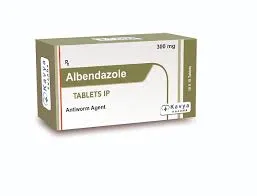- Afrikaans
- Albanian
- Amharic
- Arabic
- Armenian
- Azerbaijani
- Basque
- Belarusian
- Bengali
- Bosnian
- Bulgarian
- Catalan
- Cebuano
- Corsican
- Croatian
- Czech
- Danish
- Dutch
- English
- Esperanto
- Estonian
- Finnish
- French
- Frisian
- Galician
- Georgian
- German
- Greek
- Gujarati
- Haitian Creole
- hausa
- hawaiian
- Hebrew
- Hindi
- Miao
- Hungarian
- Icelandic
- igbo
- Indonesian
- irish
- Italian
- Japanese
- Javanese
- Kannada
- kazakh
- Khmer
- Rwandese
- Korean
- Kurdish
- Kyrgyz
- Lao
- Latin
- Latvian
- Lithuanian
- Luxembourgish
- Macedonian
- Malgashi
- Malay
- Malayalam
- Maltese
- Maori
- Marathi
- Mongolian
- Myanmar
- Nepali
- Norwegian
- Norwegian
- Occitan
- Pashto
- Persian
- Polish
- Portuguese
- Punjabi
- Romanian
- Russian
- Samoan
- Scottish Gaelic
- Serbian
- Sesotho
- Shona
- Sindhi
- Sinhala
- Slovak
- Slovenian
- Somali
- Spanish
- Sundanese
- Swahili
- Swedish
- Tagalog
- Tajik
- Tamil
- Tatar
- Telugu
- Thai
- Turkish
- Turkmen
- Ukrainian
- Urdu
- Uighur
- Uzbek
- Vietnamese
- Welsh
- Bantu
- Yiddish
- Yoruba
- Zulu
दिसम्बर . 12, 2024 10:57 Back to list
injectable ivermectin dose for goats
Injectable Ivermectin Dose for Goats A Comprehensive Guide
Ivermectin is a widely used antiparasitic treatment that has proven to be effective in managing various parasitic infestations in livestock, including goats. As a potent macrocyclic lactone, ivermectin acts by disrupting the nerve and muscle function of parasites, leading to paralysis and death. This article will discuss the appropriate injectable ivermectin dosage for goats, its benefits, potential side effects, and best practices for administration.
Understanding the Need for Ivermectin in Goats
Goats are susceptible to a range of internal and external parasites, including gastrointestinal roundworms, lungworms, and ectoparasites like ticks and lice. These parasites can contribute to a variety of health issues such as weight loss, anemia, and in severe cases, death. Effective control of parasites is crucial for maintaining the health of goats, ensuring optimal growth, and improving overall productivity.
Injectable Ivermectin Dosage
The typical dosage of injectable ivermectin for goats is generally around 0.2 mg/kg of body weight. It is administered via subcutaneous injection, typically in the neck region to minimize local irritation and reduce the risk of abscess formation. This standard dosage may vary depending on the specific formulation of ivermectin being used and the particular strain of parasites present. Therefore, consulting with a veterinarian for precise dosing tailored to your goats’ needs is highly recommended.
Example Dosage Calculation
To illustrate, if you have a goat weighing 50 kg, the calculation for the ivermectin dosage would be as follows
- Dosage 0.2 mg/kg - Weight 50 kg - Total Dose 0.2 mg/kg × 50 kg = 10 mg
Thus, a 50 kg goat would require 10 mg of injectable ivermectin. It’s crucial to ensure accurate weight measurements for dosing, as incorrect dosages can lead to under-treatment or potential toxicity.
Administration of Injectable Ivermectin
When administering ivermectin, it is essential to follow these best practices
2. Sanitize the Injection Site Clean the area where the injection will be given to minimize the risk of infections.
injectable ivermectin dose for goats

3. Select the Appropriate Needle Use a needle size that is appropriate for the age and size of your goat to facilitate easy administration while minimizing discomfort.
4. Inject Slowly Administer the ivermectin slowly and carefully to reduce stress and discomfort to the goat.
5. Monitor for Reactions After administration, observe the goat for any adverse reactions, which may include swelling, tenderness, or signs of allergic reactions.
Benefits of Ivermectin
The use of injectable ivermectin offers several benefits for goat owners. These include
- Broad Spectrum Efficacy Ivermectin is effective against a wide variety of parasites, including both endoparasites and ectoparasites, making it a versatile option for livestock management.
- Long-lasting Effects This treatment generally provides residual action, which helps in the protection of goats from reinfestation over an extended period.
- Ease of Administration Injectable forms allow for quick and exact dosing compared to oral formulations.
Potential Side Effects
While ivermectin is generally safe when administered correctly, it may cause some side effects. These can include
- Minor local reactions at the injection site, including swelling or irritation. - Transient nervous system effects, such as trembling or lethargy, may occasionally occur. - Allergic reactions, though rare, necessitate immediate veterinary attention.
Conclusion
Administering injectable ivermectin to goats is an effective strategy in managing parasitic infestations. Following the recommended dosage and best practices for administration can ensure the health and productivity of your goats. Regular monitoring and consultation with veterinary professionals will further optimize your herd’s health management program, safeguarding them against the challenges posed by parasites. Whether you are a seasoned goat farmer or a newcomer to livestock management, understanding the role of ivermectin is essential for achieving optimal outcomes in your herd.
-
Guide to Oxytetracycline Injection
NewsMar.27,2025
-
Guide to Colistin Sulphate
NewsMar.27,2025
-
Gentamicin Sulfate: Uses, Price, And Key Information
NewsMar.27,2025
-
Enrofloxacin Injection: Uses, Price, And Supplier Information
NewsMar.27,2025
-
Dexamethasone Sodium Phosphate Injection: Uses, Price, And Key Information
NewsMar.27,2025
-
Albendazole Tablet: Uses, Dosage, Cost, And Key Information
NewsMar.27,2025













